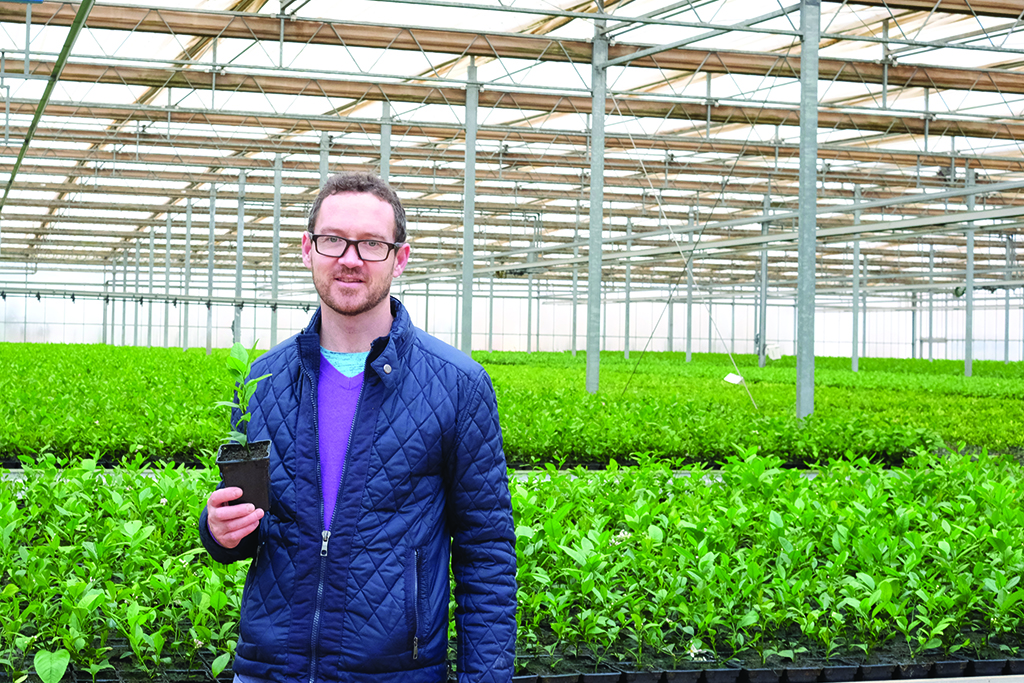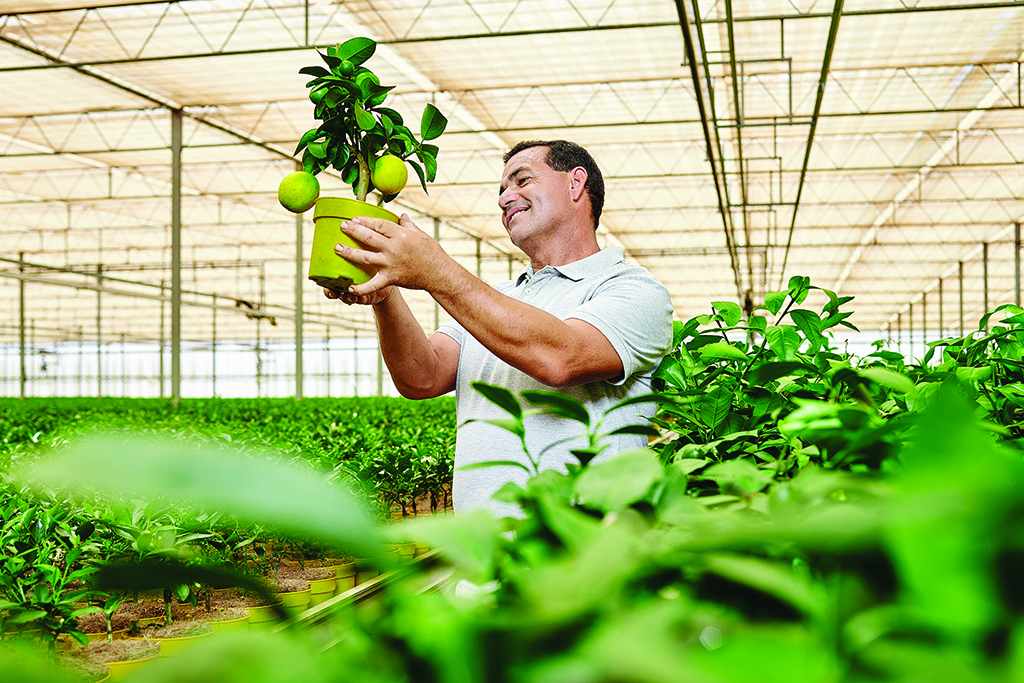Citrina: Algarve business bears fruit
In the ’80s it was Bonsai trees, in the ’90s Bay trees. Today, ornamental citrus trees are all the rage and big business in cold Northern European climes. Particularly for Citrina — an Algarve-based company which has cornered the market with a €4 million turnover, selling 1.2 million trees annually.
With offices and production in Paderne in inland Algarve, Citrina has been enjoying 10% year-on- year export sales increases since branching out into the ornamental tree market around the turn of the millennium. Since then, the company has grown from strength to strength and business is flourishing.
In 2015, it was the number one Portuguese export company in a league table produced by Dun & Bradstreet, which analysed 1093 Portuguese exporting companies in all sectors on performance and quantifiable data.
Today, Citrina is the largest producer of indoor ornamental citrus plants in Europe. Managing director Nick Henley- Welch tells Essential: “One of the keys to our success is our small tree sizes. Competition is fierce, particularly from Southern Italy, but we stand out from our competitors by providing trees in 12cm pots which reach maturity at 35cm, making them them ideal house-plants. We are the only grower in Europe to have this size. We also produce plants in 14cm pots, and are expanding in the 12cm pot- size and with new varieties.”

Managing director of Citrina, Nick Henley-Welch
He adds: “We have an agreement with a Spanish research station to develop new varieties in the coming years, ones that are interesting for culinary purposes or stand out aesthetically from the others currently on the market”. Citrina’s main markets are Germany, the United Kingdom and Scandinavia, but their miniature trees also sell well in Russia and other Eastern European countries. And although miniature tree types come and go with fashions, the managing director says that their popularity shows no signs of wilting.
“In our view the market is still expanding and our products are still as new and fresh as our trees for some of our customers.”
The company produces over a million plants from its 30-hectare production site, with trees taking two and a half years to mature to sale. Of these, 99% are exported via a distribution centre in the Netherlands and distributed on to 30 countries.
“In the past year we started supplying supermarkets,” says Nick Henley-Welch, who adds that during the European recession between 2008-2012, their business was “not even affected”. Citrus trees originally came from India, Ceylon and Australia, but the smaller tree varieties may have hailed from Bangladesh around 7000 years ago. The Moors cultivated them in the Algarve in the Middle Ages.

Empoloyee at Citrina holds a citrus tree
With names like Lara, Lisa, Leila, Lyvia, Ophelia, Oriana, Lamai and Onika, the trees have an intense green foliage, while their miniature fruit has a fresh, citrusy aroma. Perfect as decorative indoor features, they retail for around €15 for a 14cm pot and €10 for a 10cm pot, but prices may vary from market to market. Citrina varieties include: Limonella, Meyer Lemon, Hystrix, Lime, Lakeland Limequat, Nagami Kumquat, Calamondin and the newest addition, Fortunela.









